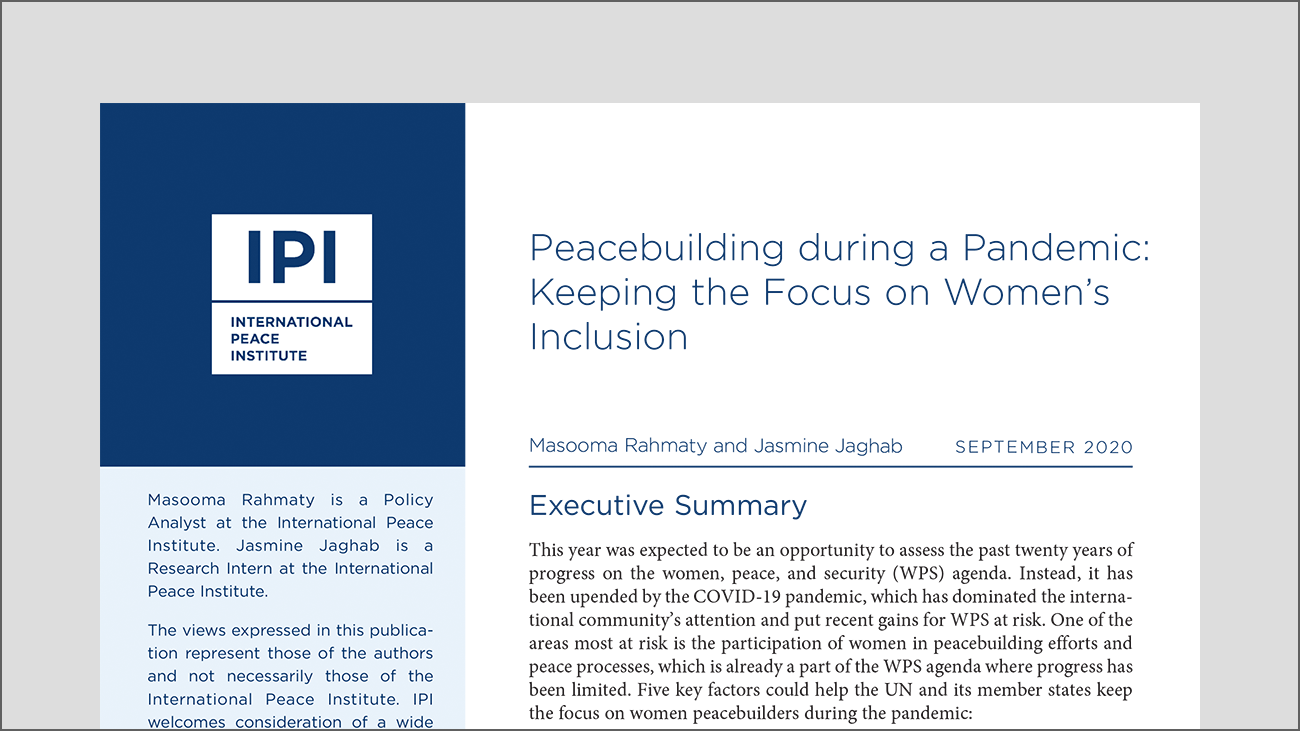
This year was expected to be an opportunity to assess the past twenty years of progress on the women, peace, and security (WPS) agenda. Instead, it has been upended by the COVID-19 pandemic, which has dominated the international community’s attention and put recent gains for WPS at risk. One of the areas most at risk is the participation of women in peacebuilding efforts and peace processes, which is already a part of the WPS agenda where progress has been limited.
This paper looks into what actions states and international actors can take to ensure women’s participation in peacebuilding and peace processes during the pandemic. It draws on two virtual meetings—one at the ministerial level and one at the ambassadorial level—convened in partnership with the government of Sweden. Based on these meetings, the paper identifies five key factors that could help the UN and its member states keep the focus on women peacebuilders during the pandemic:
- State leadership on WPS in multilateral fora: In the face of the pandemic, it is critical for UN member states to defend recent gains made in implementing the WPS agenda in multilateral fora, especially the Security Council.
- Women’s participation in formal peace processes: While the pandemic has made it even more difficult for many women to participate in formal peace processes, the normalization of virtual convenings could be an opportunity to bring more women to the table.
- Protection and security of women peacebuilders: The UN and its member states have a role to play in providing women peacebuilders both physical protection and international legitimacy and recognition.
- Financing for women peacebuilders: The pandemic has made funding even more of a challenge for women peacebuilders. Donors should recognize the important role of women’s organizations in the pandemic response and recovery when deciding how to allocate funding.
- Data-driven responses: There is a need for a coordinated, risk-sensitive approach to data collection to ensure that the COVID-19 response reflects an understanding of how the pandemic affects women.







